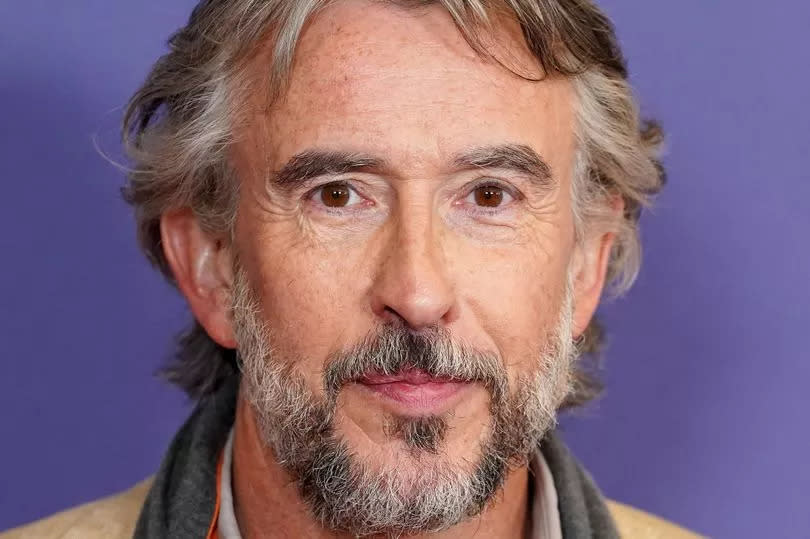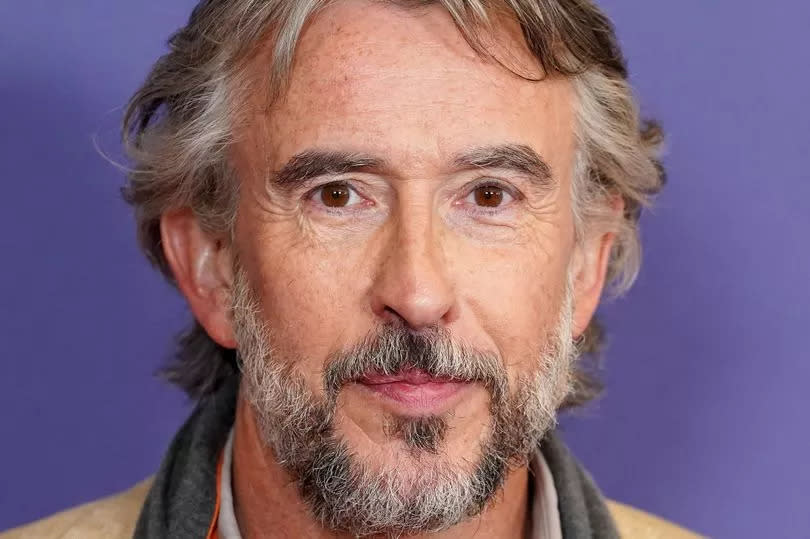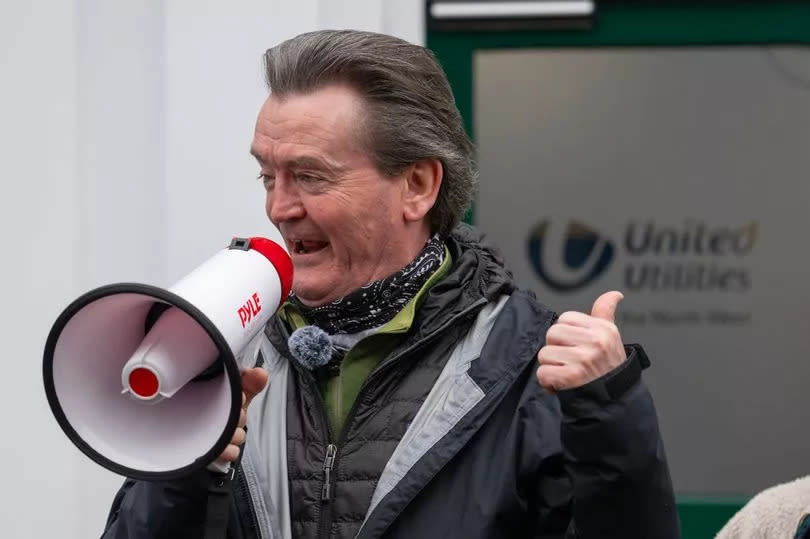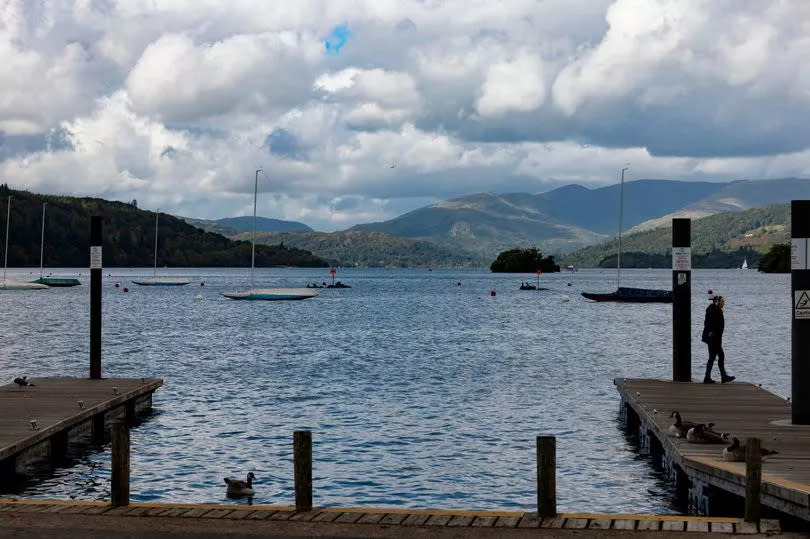Steve Coogan accuses water company of creating "a timebomb" at Windermere

Steve Coogan claims a water company has created a “timebomb” in Britain's largest lake by dumping untreated sewage in its catchment. The comedian has spoken out again over the state of Windermere, after last year describing its pollution as a "national scandal".
He joined a protest on Sunday at England’s largest lake against what he said was inaction by Tories, Labour and United Utilities, which serves northwest England. “If England can’t clean up its crowning glory, then what hope is there?” said the actor, who filmed much of the first series of 'The Trip' in the Lake District with his fellow comedian Rob Brydon.
In May last year Coogan and fellow funnyman Lee Mack spoke out to raise awareness of the issue. The Middleton born actor and comedian joined forces with the Would I Lie to You and The 1% Club star to demand a water company removed sewage from the lake.
Now the Alan Partidge star is supporting Matt Staniek, 28, a zoologist who is staging his 24th week of a "sewage strike" outside a United Utilities information centre at Windermere. “United Utilities are engaged in a sort of PR exercise … but they’re not really doing anything to tackle the problem,” Coogan told The Times newspaper.

He said the problem was “systemic and endemic” because the company put its shareholders before its customers. “People are entitled to expect United Utilities to deliver a good service, and putting sewage into the lake is not providing a good service.” United Utilities was the worst water company for sewage spills last year, accounting for almost 100,000, partly owing to its high number of storm overflow outlets.
Coogan said the result was a “timebomb” of pollution at the bottom of Windermere. Nutrient pollution from sewage discharges and other sources has been linked to several toxic algal blooms in recent years that have turned the lake green, and which are now being tracked by satellites. "This is not just an environmental issue, it’s not a fringe issue,” Coogan said. “Ordinary people use these lakes who can’t afford to go on expensive holidays. It’s what the public deserve and are entitled to.”
Last week the Undertones singer and water campaigne Fergal Sharkey criticised United Utilities for “poisoning” the lake out of “corporate greed”. The comedians Joe Lycett, Lee Mack and Paul Whitehouse, who warned rivers face a “tipping point”, are also supporting the campaign.

Coogan pointed to the example of Lake Annecy in France. The lake in the Haute-Savoie region is known for its clean water but was once “a rubbish tip”, where sewage, rotting meat and old cars were dumped before a 30-year clean-up effort. “I’m involved in this because I think it’s winnable,” Coogan said.
He added that neither the government nor Labour were doing enough on water pollution. The next government must enforce existing legislation to prevent further damage and enact new laws to force companies to reverse past harm to Windermere and other lakes and waterways, he added.
United Utilities, which has spent £75 million since 2000 on reducing pollution in the Windermere catchment, wants to raise bills by 24.5 per cent by 2030 to pay for new infrastructure. Coogan said that investment should be paid out of profits, not households. “The talk of having to pass the bill on to the customer is untenable and needs to be opposed,” he said.
Since the privatisation of the water companies in 1989, a total of £72 billion has been paid to shareholders by the sector, according to analysis carried out by Professor Peter Hammond, an economics specialist at the University of Warwick and first reported in the Financial Times.

Environmental charity Friends of the Lake District, which has campaigned since 1934 to protect the landscapes of Cumbria, is calling for the end of all sewage discharges into the lakes. There were 246 days in 2022 when sewage was discharged by United Utilities from storm overflows into Windermere lakes, according to Environment Agency data.
Storm overflow systems are large pipes integrated into combined sewer networks, which automatically release sewage into rivers or the sea during heavy rainfall, to prevent waste flooding homes. The Save Windermere campaign says high phosphorus levels from this sewage are leading to a rapid increase in potentially toxic algae blooms, which damage the wildlife and ecosystem of the river.
A United Utilities spokesperson said: “We are proposing a £14bn investment plan across the north west - one of the largest ever seen. That will help us deal with the increasing challenges of a changing climate and reduce the number of spills from storm overflows. However, last year was one of the wettest years on record in the north west and that contributed to an increased number of storm overflow operations.
"Looking specifically at lake Windermere, since 2015, we have invested £45m which has helped us halve the levels of phosphorus entering the lake from our systems. But we know there is more to do and that's why we have brought forward a new £41m programme of investment, which will halve storm overflow operation at four sites in Windermere by 2030.
“Whilst the current system is designed to activate during rainfall, we understand and share people’s concerns and we are determined to deliver the step change that we all want to see.”

 Yahoo Sport
Yahoo Sport 





































